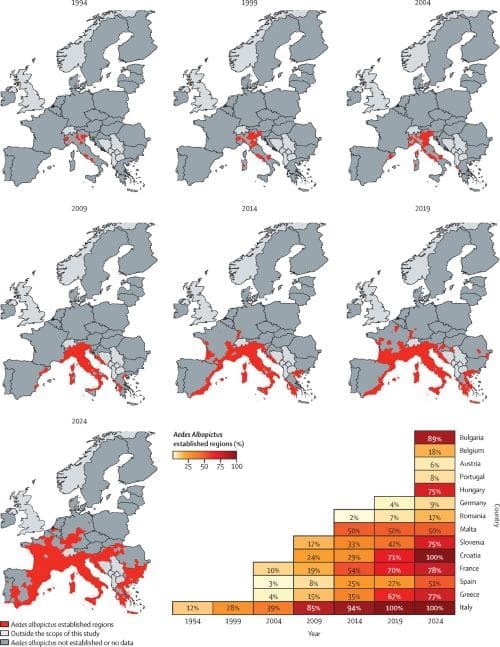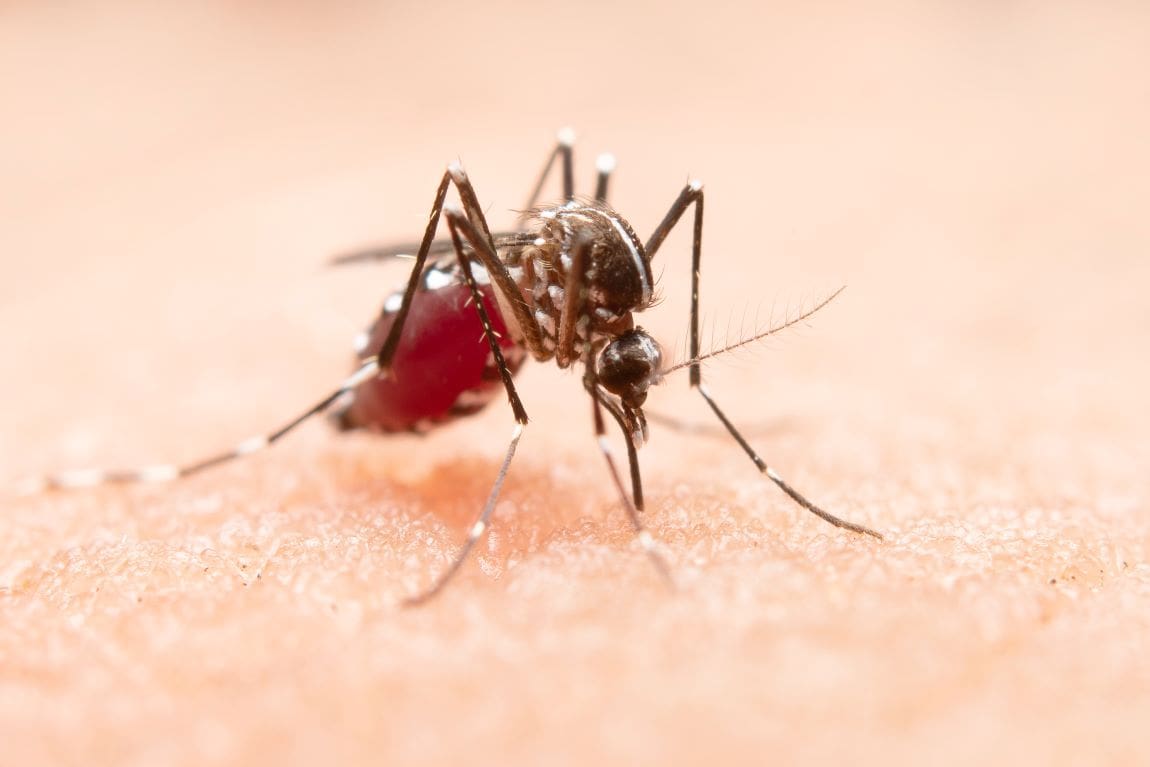Paris, France | AFP
The feverish diseases dengue and chikungunya could soon become endemic in Europe as the tiger mosquitoes that transmit these viruses spread farther north due to global warming, according to new research published Thursday.

Roughly half the world’s population is already at risk of contracting the two diseases, which were once mainly confined to tropical regions.
Both viruses cause fevers and can be deadly in rare cases, spread by the mosquitoes Aedes aegypti and Aedes albopictus.
The latter, which is known as the tiger mosquito, is venturing further north as the world warms because of human-driven climate change.
The new study, published in the Lancet Planetary Health journal, analyses the impact a number of factors including the climate have had on the spread of the two diseases in Europe over the last 35 years.
The frequency and severity of outbreaks have increased since 2010 as temperatures have risen, according to the study.
Yet just over 300 cases of dengue were recorded in the European Union in 2024 — the hottest year on record — compared to 275 over the previous 15 years.
Dengue outbreaks
Dengue outbreaks have now hit Italy, Croatia, France and Spain.
“Our findings highlight that the EU is transitioning from sporadic outbreaks of Aedes-borne diseases towards an endemic state,” it said.
The higher temperatures soar, the greater the risk of outbreaks caused by tiger mosquitoes, the European research team said.
Under worst-case climate change scenarios, outbreaks of both diseases could rise to five times the current rate by 2060, they projected.
Outbreaks have been more common in wealthier areas, suggesting that better testing is able to spot the virus — and that cases could be going undetected in poorer areas, the study suggested.
The French Indian Ocean island of Reunion has recently endured a deadly outbreak of chikungunya.
Tiger mosquitoes can also transmit the zika and West Nile viruses, which were not studied in the latest research.
ref/dl/rlp
© Agence France-Presse
Journal Reference:
Farooq, Zia et al., ‘Impact of climate and Aedes albopictus establishment on dengue and chikungunya outbreaks in Europe: a time-to-event analysis’, The Lancet Planetary Health 9, 5, e374 – e383 (2025). DOI: 10.1016/S2542-5196(25)00059-2. Also available on ScienceDirect.
Article Source:
Press Release/Material by Rébecca Frasquet | AFP
Featured image credit: jcomp | Freepik




